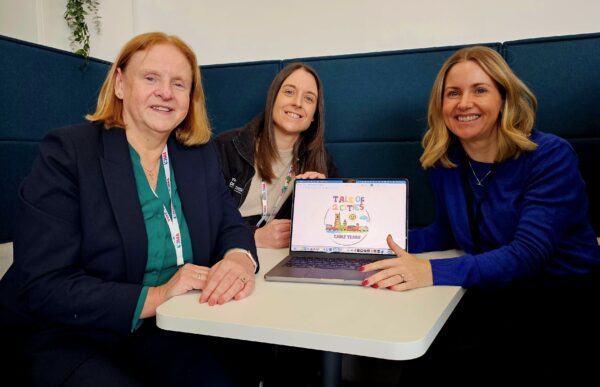Latest News | 21 July 2025
Consultancy shares key findings from NHS mental health project

Brand and human transformation consultancy Q Branch Consulting has shared key findings on how to encourage more men and over-50s to get help for their mental health after working with the NHS on the issue.
Founders Matt Clutterham and Jenny Jarvis have been working with a large NHS trust to try and boost numbers of men and over-50s getting support for anxiety and depression through ‘Talking Therapies’.

Now the couple have shared key findings as to why certain social groups might not access services that could dramatically improve their mental health – and what providers could do about it.
Jenny said: “We were really happy to be chosen to work with the NHS and use our brand and human transformation expertise on something that is so important – both to us and to wider society.
“We had a deep dive into the issue, looking at why some sectors of society, specifically men and over-50s, are finding it much harder to access the Talking Therapies service offered through the NHS.
“We’re really happy to say that as a result of our work the NHS trust is already seeing many more people in those harder-to-reach groups reach out for help, which is a great result and absolutely pivotal if we are going to be seeing any kind of improvement in the mental health crisis we find ourselves in.”
The latest statistics show that nearly two million people in the UK have sought help through the NHS’s Talking Therapies programme.
But with around one in six people in the country reporting symptoms of depression, there are still millions of people in the country who may not be reaching out for help that could benefit them.
Q Branch Consulting conducted intensive focus groups examining why over-50s were not accessing help through Talking Therapies.
They identified that in order to access help, it was important for older patients to see recognisable and trusted figures in any visual marketing materials such as posters, including recognising their own gender and a trusted professional voice.
Jenny said: “Our focus groups found that the older generation would not necessarily trust a poster suggesting they could access Talking Therapies if it came just from the ‘NHS’. They would be far more likely to pay attention if it was from a trusted professional person, such as a GP or pharmacist.
“We also found that the older generation will often not articulate they feel depressed, only going so far as to say things like ‘feeling a bit off’.
“They don’t want to be seen as a burden, and they want to feel valued and needed.
“So, we created a messaging campaign that reached out to older people by acknowledging their many years of caring for others, suggesting it may be their turn to be helped themselves.
“We also used everyday language to help forge connections with an audience, rather than medical speak that can quickly become alienating.
“Our research showed that the older age group absolutely must not feel pitied but empowered to act on themselves and not have their independence threatened.”
To create better marketing for men and their mental health, Q Branch Consulting turned to its work with the male suicide prevention charity Tough to Talk.
Matt, who is a trustee of the charity, said: “It’s well recognised that despite increased awareness, men find it much harder to seek help for their health generally than women.
“Tough to Talk is doing brilliant work reaching out to men in the workplace and delivering its ‘tough talks’ – trying to prevent men from taking the awful step of taking their own life.
“It was through our work with Tough to Talk that we were contacted by the NHS and we were happy to be able to use some of our knowledge in this area.”


